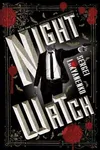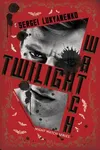Step into the shadowy streets of Moscow, where supernatural beings called Others weave magic and mystery in Sergei Lukyanenko’s gripping Night Watch series. This urban fantasy saga blends noir vibes, philosophical depth, and a uniquely Russian perspective, following Light magician Anton Gorodetsky as he navigates a world of moral ambiguity, balancing good and evil in an eternal struggle.
Unlike typical fantasy epics, Night Watch grounds its magic in gritty, post-Soviet realism, making Moscow a character as vivid as its vampires, shapeshifters, and sorcerers. With its thrilling plots and thought-provoking themes, this series is a must-read for fans craving something fresh and immersive.
How Night Watch Began
Sergei Lukyanenko, a Russian sci-fi and fantasy author, birthed Night Watch in 1998, inspired by his love for blending intense action with moral complexity. A trained psychiatrist, Lukyanenko infused his storytelling with psychological depth, crafting a world where magic mirrors human nature. First published in Russia, Night Watch became a cultural phenomenon, spawning sequels, films, and a global fanbase, thanks to its innovative take on urban fantasy.
Lukyanenko’s Moscow, steeped in post-Soviet decay, sets the stage for a narrative that feels both exotic and relatable. His vision of the Others—humans with supernatural powers choosing between Light and Dark—drew from classic good-versus-evil tropes but subverted them with nuanced, morally gray choices.
The Heart of Night Watch
The Night Watch series spans six main books, each blending urban fantasy, spy thriller, and philosophical musing. The first, Night Watch (1998), introduces Anton Gorodetsky, a reluctant Light magician tasked with policing Dark Others like vampires and witches. When he encounters Svetlana, a cursed woman with immense power, Anton faces choices that could tip the balance of Moscow’s fragile truce.
Subsequent books—Day Watch (2000, co-authored with Vladimir Vasilyev), Twilight Watch (2004), Last Watch (2006), New Watch (2012), and Sixth Watch (2014)—deepen the saga. Day Watch shifts to Dark Others’ perspectives, while Twilight Watch explores Anton’s family and a dangerous magical artifact. The series’ structure, often three interconnected novellas per book, keeps the pacing brisk and layered.
Themes of moral ambiguity, free will, and the cost of power dominate, set against Moscow’s moody backdrop. The Twilight, a parallel magical realm, adds mystique, while the city’s metro and Khrushchev-era apartments ground the supernatural in stark reality. Lukyanenko’s witty, fatalistic tone and rich world-building make every page a blend of action and introspection.
Why Night Watch Resonates
Night Watch redefined urban fantasy by infusing it with Russian fatalism and cultural nuance, influencing authors and captivating readers worldwide. Its blend of gritty realism and supernatural intrigue inspired a 2004 Russian film, praised by Quentin Tarantino, and a sequel, cementing its pop culture status. Fans adore Anton’s relatable struggles and the series’ refusal to simplify good and evil.
Even years later, Night Watch’s exploration of morality and identity feels timeless, appealing to readers who love complex characters and immersive settings. Its cult status grows as new fans discover its unique voice in a crowded genre.
- First Published: 1998
- Number of Books: 6 main novels
- Setting: Contemporary Moscow
- Notable Adaptation: 2004 film, Night Watch
Grab Night Watch and dive into a world where magic pulses beneath Moscow’s streets, and every choice could change the balance of Light and Dark!





